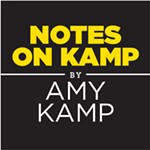Lit-urday: The Noble Hustle
Colson Whitehead's latest is an underachiever
By Amy Kamp, 11:00AM, Sat. Sep. 13, 2014

It's been a long week, and now you deserve to have one day when you can curl up with a good book – let's call it Lit-urday. Perhaps you're in the mood for the latest by Colson Whitehead, who returns to the Texas Book Festival this October.
The Noble Hustle: Poker, Beef Jerky, and Death
by Colson Whitehead
Doubleday; 234 pp.; $24.95
The Noble Hustle, Colson Whitehead’s seventh book and his second work of nonfiction, began its life as “Occasional Dispatches From the Republic of Anhedonia,” a four-part series for Grantland. According to Whitehead, after he turned down the magazine’s initial request for a contribution, its editor convinced him by offering to pay for Whitehead to compete in the 2011 World Series of Poker - a $10,000 stake. “I had no choice,” he writes.
Thus a time-honored journey begins: Literary author interacts with the nonliterary, writes a witty yet existential essay filled with observations such as this, “I like the Leisure Industrial Complex when I can find it, those meticulously arranged consumer arenas. I don’t care if it’s a suburban galleria sucking the human plankton into itself from the exit ramps or a metro-area monolith stuffed with escalators to convey the herd to the multiple price-pointed retail outlets, food court stalls, and movie screens.” Over the course of the book, Whitehead, a longtime amateur poker player, practices his game in Atlantic City, reminisces about his time playing home games, enlists the help of a professional player, reminisces about his first trip to Las Vegas, and, finally, competes in the WSOP.
Making his way, he casts a cold eye upon his fellow travelers, sorting them into recurring types: “Methy Mikes [...] are weathered by the sun, by their lifestyles, which you can only guess at, the underlying narrative of their decay, and resemble unfortunates who have been dragged on chains from the back of a beat-up van and left to desiccate in the desert.” As if to even the score, he turns on himself: “It was nice to have a diversion from how I usually spent my days, which was basically me attempting to quantify, to the highest degree of accuracy, the true magnitude of my failures - their mass, volume, and specific gravity.” He’s more generous in his description of his coach, Helen Ellis, a poker player, novelist, and self-described housewife: “Helen’s [mask] hid her poker kung fu, and her deception was a collaboration [...] The dudes flirted and condescended, and then this prim creature in a black sweater and pearls walloped them.”
Whitehead is an acclaimed writer; his novels are best-sellers, and he’s the winner of prestigious awards, such as the MacArthur Fellowship. He’s more than earned his success. In his fiction, Whitehead combines absurdist humor, relentless creativity, formidable technical skill, and a sharp eye to create works that feel light but have real depth. No two of his books are alike: His first novel, 1999’s The Intuitionist, takes place in an alternate-reality version of early twentieth century New York City, and features as its protagonist the city’s first black, female elevator inspector, who is able to discern an elevator’s defects through intuition; his most recent, 2011’s Zone One, is a painterly, highbrow entry in the zombie apocalypse subgenre. Beyond the realm of genre-bending, the memoirlike Sag Harbor (2009) reflects on a teenage summer at a family beach house: “According to the world, we were the definition of paradox: black boys with beach houses. What kind of bourgie sellout Negroes were we, with BMWs (Black Man’s Wagons, in case you didn’t know) in our driveways and private schools to teach us how to use a knife and fork, and sort that from dat? What about keeping it real?”
However, Whitehead has yet to achieve the same level of mastery as a nonfiction writer. The Noble Hustle feels like the much shorter essay it originally was, now stretched out over 234 pages, and dressed up handsomely as a hardcover book. As a magazine essay, it’s enjoyable enough, but it - like Whitehead’s other nonfiction writing - lacks the emotional and intellectual complexity of his novels. It’s as though he feels it might be improper to reveal too much of himself, or be too serious. He jokes about hailing from the “Republic of Anhedonia” ("we are an ancient land, founded during the original disappointments, when the first person met another person") and touches on the fact that he’s a recently divorced single father, but he keeps the reader at arm’s length. Those unfamiliar with Whitehead’s work will find the introduction much more pleasant if they start off with a different book. The Noble Hustle has its merits, but they’re slight compared to those of Whitehead’s various, wonderful novels.
A note to readers: Bold and uncensored, The Austin Chronicle has been Austin’s independent news source for over 40 years, expressing the community’s political and environmental concerns and supporting its active cultural scene. Now more than ever, we need your support to continue supplying Austin with independent, free press. If real news is important to you, please consider making a donation of $5, $10 or whatever you can afford, to help keep our journalism on stands.
Lit-urday, Colson Whitehead, The Noble Hustle, Texas Book Festival







